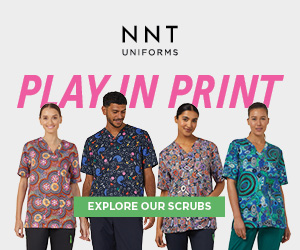Young women who regularly engage with social media are excessively self-judgemental and more likely to consider cosmetic surgery – with the number of cosmetic procedures having almost doubled in eight years, new research has revealed.
The findings follow the health regulator’s calls this month for further reforms to the cosmetic industry due to escalating consumer demand and an increase in complaints over serious harm.
The University of South Australia study, released this week, shows concerning impacts of social networking sites on young women’s body perceptions and attitudes to cosmetic surgery.
“The prevalence of body dissatisfaction among young women has long been a pervasive issue, with social media promoting unattainable beauty standards,” said UniSA researcher and PhD candidate, Lauren Conboy.
“In Australia, young adults are among the greatest users of social networking sites, so their exposure to unrealistic body ideals is high. Not surprisingly, the increase in social media use has been accompanied by an increase in young women having cosmetic surgery.”
The study of 238 young Australian women (aged 18-29) also identified that 16% of women had already received cosmetic surgery and that more than half (54%) would consider having it in the future. Only 31% said that they would not undertake surgical cosmetic procedures.
Cosmetic surgery has become increasingly popular. From 2010 to 2018, cosmetic procedures and surgeries almost doubled from 117,000 to more than 225,000. Today, almost 38% of the adult population are considering cosmetic surgery in the next 10 years.
President of the Cosmetic Nurses Association Sheri-lee Knoop agreed that cosmetic surgery/procedures have become prolific with the advent of social media.
“When I got into cosmetic nursing 30 years ago, it was not commonplace to have people aged under 35 years as clients. Social media has changed the industry. Influencers like the Kardashians – they put looking after yourself and changing yourself on the map.”
“There’s an openness about how we look and what we’re able to have done. They do it (celebrities) so why can’t I? Patients under 45 years think it’s necessary to present themselves on their best foot, it’s a non-negotiable.”
The UniSA study foun cosmetic procedures were well accepted among young women, and that higher use of social media correlated with greater acceptance of cosmetic surgery.
Clinicians needed to test and confirm the psychosocial safety of young women who are possibly influenced my media representations of beauty, before they consent to have cosmetic procedures, said co-researcher, UniSA’s Dr John Mingoia.
“Research tells us that even after women get a cosmetic procedure, less than 40% are satisfied with their bodies post-surgery.
“If young women continue to access cosmetic surgery without addressing underlying self-compassion concerns, they may never feel content in their own body.”
Further reforms to cosmetic industry
Cosmetic procedures, including Botox and other anti-wrinkle injections and fillers, will come under the spotlight in an expansion of a year-long crackdown on Australia’s cosmetic surgery industry.
One year on from an independent review into cosmetic surgery, released on 1 September 2022, work is almost complete on most of the 16 recommendations to improve public safety, including higher practice standards and new advertising rules for doctors, now in place.
The Australian Health Practitioner Regulation Agency’s focus is also widening to introduce stronger safeguards because of escalating consumer demand for non-surgical cosmetic procedures, and more practitioners seeking a career path in the cosmetics industry.
The number of reported complaints of serious harm from cosmetic surgery has grown significantly since attention was shone on the sector over the past 18 months.
A cosmetic Surgery Hotline, launched on 5 September 2022, received 428 calls, including from patients concerned about their treatment, from other doctors who have had to address poor outcomes, and from consumers keen to make informed choices.
The regulator will release new guidelines for all health practitioners providing fillers, Botox injections and other aesthetic treatments.
The Nursing and Midwifery Board of Australia (NMBA) has decided to strengthen its position statement Nurses and cosmetic medical procedures released in 2016, into guidelines for nurses working in or wanting to join the cosmetic sector.
“As the sector grows, now is the time to strengthen our regulatory position and provide further clarity to nurses looking to work and working in this space.
“The public needs to feel safe and know that nurses performing these procedures are appropriately educated and competent,’ said NMBA Chair Veronica Casey.








